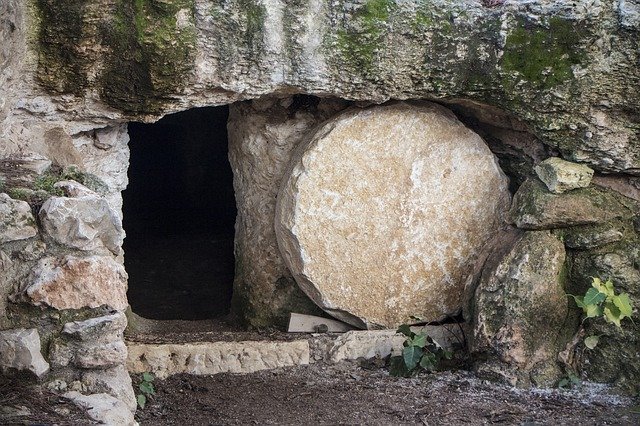This weekend, Christians all over the world remember and celebrate the greatest events in all of history: the death and resurrection of Jesus Christ. These pivotal events demand that we deal with them in some way.
While few dispute that Jesus was crucified or buried, many have endeavored to disprove His resurrection. Several have returned from their quest not as affirmed atheists, but as committed Christians. Why is this?
This is because the evidence of Jesus’ resurrection is undeniable. Every other theory to explain His missing body has more leaks than a used diaper. The only plausible explanation is that He did, in fact, rise from His grave.
While we have examined the impeccable proof for this in previous columns, today I challenge us to respond to it. As Josh McDowell said, this is “evidence that demands a verdict.” We must make a decision about what this supernatural occurrence means for us.
There are several possible responses. Even after all evidence is verified, we can still reject it. We are capable of dismissing clear truth if we don’t want to believe it. If we dare accept Jesus’ resurrection, then His teachings may threaten our lifestyles that we don’t wish to change.
Many who reject the resurrection spend much time and energy fighting against what they know to be true. While intentionally setting aside the airtight proof, they go after other issues in an effort to discredit Christ and His followers, believing if they can chip the paint, the building will collapse.
A second way of dealing with Jesus’ resurrection is to ignore it. We research and find it actually occurred, but then live as though it didn’t. If Jesus did fulfill His own prophecy by rising, then His other teachings demand our earnest consideration. Should we love God with all our hearts, souls, minds and strengths, and our neighbors as ourselves? Will He return to judge us all? Is there an eternal heaven and hell?
If we keep the volume of our reason turned down, however, we can drown out His clear instructions and live as we please. The philosophies and actions of our pleasures overpower the truths that make us uncomfortable. If we ignore the creditors, maybe they will disappear.
The most consistent response to Jesus’ irrefutable resurrection is modeled by His disciple, Thomas. After boasting about refusing to believe the resurrection until it was proven by Jesus Himself, Thomas collapsed at His nail-scarred feet in humble worship and proclaimed, “My Lord and my God!”
If Jesus has already done the hardest thing ever by rising from the dead, than He is who He said He was: The Son of God. As such, He demands our attention, worship, and obedience. To admit that He is God and then ignore or disobey Him is blatant rebellion. The truth of His resurrection constrains us to follow Him regardless of our cost.
Finally, we can delay a decision about Jesus. We’re too busy playing life’s games, making fortunes, and building empires to allow Jesus’ claims to interfere with all that we have going on. Perhaps when we’re old we’ll seek eternal life. Perhaps if our plans fail, we’ll ask Jesus to bail us out. But don’t expect me to acknowledge Him when I’m doing so well without Him.
Dear readers, please recognize the danger and fallacy of this approach. Jesus’ resurrection is true whether our lives are good or bad, whether we’re wildly successful or miserable failures. To purposefully offer the Supreme Ruler of the universe our life’s leftovers is cheap and insulting. Yet even this He accepts if we are sincere.
How much wiser and more consistent to follow our logical conclusions by living each day to honor Him. Although our good works do not earn us eternal life, they are offerings we can present as grateful recipients of life’s best gifts. If you’ve never examined Jesus’ resurrection for yourself, do so immediately. And if you have but are rejecting or ignoring your conclusions, or delaying an obedient response, do so no longer. Enjoy the benefits of serving Him.
Resurrection blessings! George
